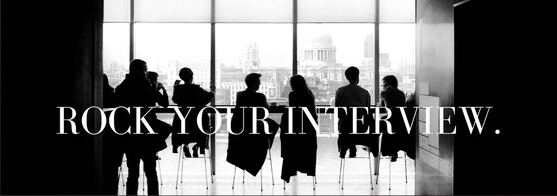While the thought of an upcoming interview for an internship or brand ambassadorship might feel intimidating, there is truly nothing to worry about if you spend some time preparing for and understanding the interview process. At Evolvez, we require a phone interview as part of the application process to ensure we hire the right ambassadors for each brand.
After you have perfected your resume, here are a few tips to help you rock the interview that follows:
Before the interview
(1) Preparation is key
The last thing you want to do is to wing an interview. First, be able to succinctly define what the company you are interviewing with does. Understand the products or services, as well as the overall company mission and vision. Second, make sure you understand the specifics of the role you are interviewing for. The worst thing you can do is show up for an interview and not know exactly what you will be doing. It’s okay to have questions about the position, but if you know the responsibilities outlined in the job listing, you’ll be set. If you want to go a step further, research similar positions with other companies and bring ideas for how you will own the role if given the opportunity.
Lastly, make sure to also look through a few resources outlining typically asked interview questions. Being prepared will save you from the pressure of having to answer such questions on the spot. Try to focus on curating strong answers for as many of these potential questions as possible prior to the interview. However, be sure that you don’t “over-prepare”. When it comes to answering these questions in an interview, you do not want to sound like a computer with a pre-written response.
Above everything else, having a general idea of what to expect gives you peace of mind and more confidence. If you’ve done your homework, you’ve already won half the battle.
(2) Create a personal elevator pitch
Before your interview, come up with a few, basic points about yourself – a so-called elevator pitch. Oftentimes, an interviewer will begin your conversation with a simple “So, tell me about yourself!” Be able to identify your short and long-term professional goals, as well as your strengths and weaknesses. It’s also a great idea to include a fun or unexpected fact about yourself — anything to make you stand out from the other applicants.
During the interview
(1) Communicate your confidence
You’ve prepared your strongest talking points, and you know the company’s mission and story. You’re ready, and it’s important to communicate that with your voice and body language. Confidence is a trait all employers hope to see in a job candidate. Speak with a clear voice, avoiding um’s and uh’s as much as possible. If you need time to think about a question, ask for it. Your interviewer will appreciate your effort to collect your thoughts.
(2) Expect the unexpected question
You can’t prepare for them all, so don’t sweat it if you are asked something you didn’t practice. This is one way an interviewer can test how well you think on your feet. Usually, these out-of-the-blue interview questions give you the most room to be creative with your responses and lead to more interesting, thought-provoking conversations that help you stand out!
(3) Don’t be afraid to let your personality shine through
Nobody wants to work with a robot. Employers care about you as a person and want you to feel comfortable being yourself in their workspace. It’s important to make a good first impression and to leave the interview feeling like you’ve explained yourself as accurately as possible.
(4) Have at least 1 to 2 questions prepared
At the end of the interview, your potential employer should ask you if you have any questions for them about the position you applied for. Ensure that you have a couple of questions for your interviewer to continue to communicate your interest in the company and that you’ve done your homework.
(5) Breathe
At the end of the day, recognize that it’s just an interview. Downplay the significance of the situation and you’ll be more comfortable throughout the conversation.
After the interview
(1) The thank-you email
It’s good business practice to thank the people who make time for you in their busy schedules. Sending a brief thank-you email a few hours after the interview might also help your interviewer remember your conversation more clearly.
